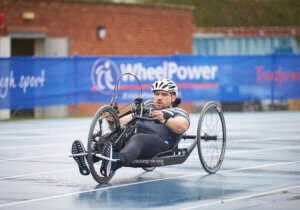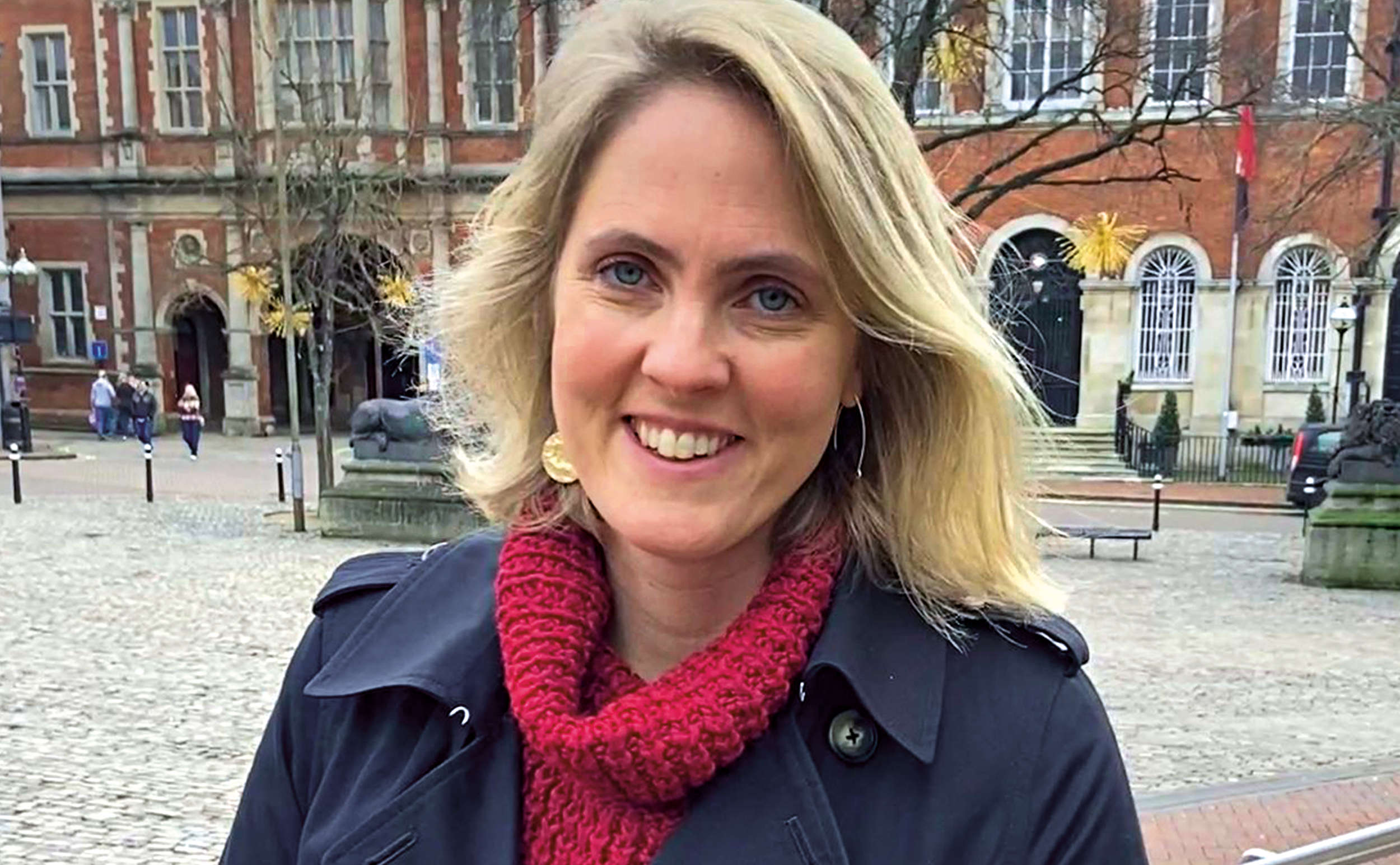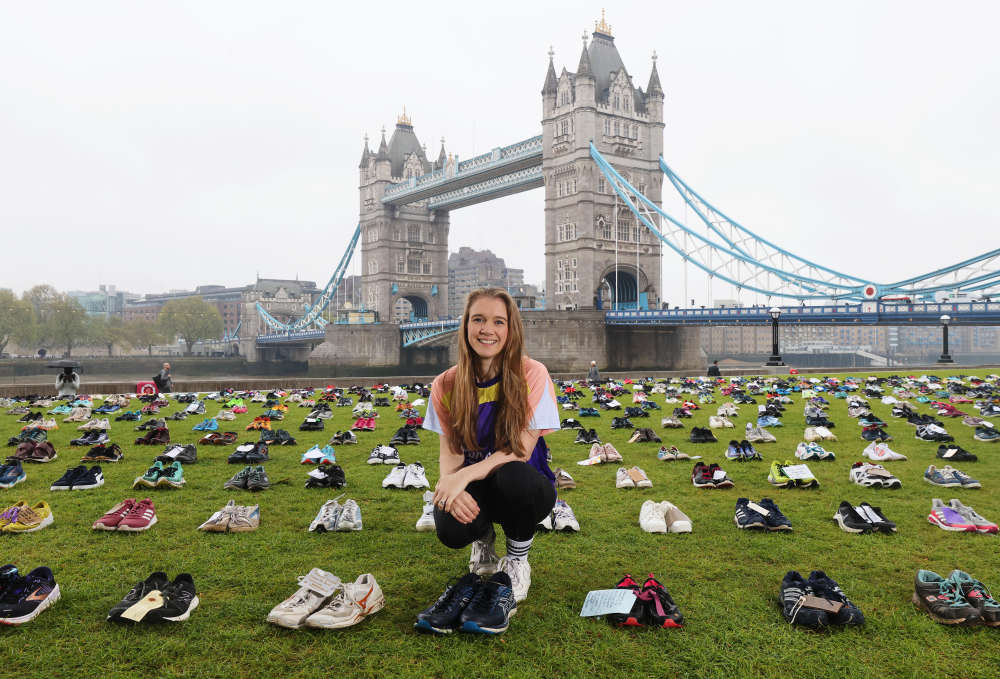
WheelPower, the national charity for wheelchair sport, based at Stoke Mandeville Stadium, the birthplace of the Paralympic Movement, has joined other organizations in signing an open letter urging the Government to reconsider proposed changes to health, disability benefits, and employment support.
The changes, if implemented, could severely impact disabled individuals' access to the mental and physical health benefits of an active lifestyle.
The proposed welfare reforms risk undermining progress made by Sport England's #UnitingtheMovement strategy, which aims to reduce inactivity among disabled people. WheelPower and other stakeholders in the sports and physical activity sector fear these changes will create significant barriers for disabled individuals, limiting their ability to engage in sports and physical activities that are essential to their well-being.
A statement from the Chancellor today reaffirmed the Government’s commitment to welfare reform, despite mounting concerns. WheelPower and other signatories of the open letter emphasize the urgent need for the Government to consider the broader implications of these cuts on disabled people.
"We hope that the Government will listen to us and not undermine the hard work we have all been doing as part of Sport England’s 'Uniting the Movement' strategy," said Martin McElhatton OBE, Chief Executive of WheelPower. "The additional living costs for disabled people are estimated at over £1,000 per month. Cutting essential support like Personal Independence Payments will force disabled individuals to make tough choices, likely leading to increased inactivity."
Disabled individuals and advocacy groups have expressed their anger and fear over the proposed cuts, stressing that while they understand the financial pressures on the Government, these measures fail to fully consider the negative consequences for disabled people.
WheelPower remains committed to working collaboratively with the Government to drive positive change and ensure that disabled individuals retain access to the opportunities they need to lead healthy, active lives.
As discussions continue and responses to the open letter emerge, the sector remains hopeful that the Government will reconsider its position to protect the rights and well-being of disabled people.

Open-Letter from the Sport, Recreation and Physical Activity sector on the costs to disabled people of ‘Pathways to Work’ and the adverse impacts on activity levels across the UK.
The way we talk and think about, and seek to support, disabled people in the UK needs to change.
The proposed changes to health and disability benefits and employment support – set out in Pathways to Work: Reforming Benefits and Support Green Paper – and the discourse surrounding them imposes significant adverse impacts on disabled people, creates even greater barriers for disabled people to access the physical and mental health benefits of an active lifestyle, and continues to propagate harmful perceptions across society.
We understand the financial challenges facing the Government and recognise that difficult decisions must be made. However, we urge the Government not to rebalance public finances at the expense of disabled people.
Impact on activity levels and Uniting the Movement
Further, as organisations representing the sport, recreation, and physical activity sector, we implore the Government to consider the additional negative effects these reforms will have on the ability of disabled people to get and remain active. The tightening of the Personal Independence Payment criteria will make disabled people more fearful of being active. The changes will not only impact individual wellbeing but will also reverse progress made by Sport England’s Uniting the Movement strategy in tackling inactivity and social isolation among disabled people.
We know that disabled people already need an additional £1,010 a month (or 62% more) to have the same standard of living as non-disabled households. There are nearly 17 million disabled people in the UK, and they remain the least active group in society. Increasing financial pressures – through proposed changes to Personal Independence Payments (PIP) and Employment and Support Allowance (ESA) – will make participation in physical activity even harder than it already is, exacerbating health inequalities and social isolation.
Activity Trap and its Consequences
Research on the Activity Trap by the Activity Alliance, commissioned by the Dwarf Sports Association UK, shows that 65% of disabled people rely on benefits or financial assistance to stay active. The loss or reduction of these essential funds will limit access to sport and physical activity, reducing opportunities for disabled people to lead independent, healthy lives.
Additionally, the harmful narrative surrounding these reforms – particularly the increased scrutiny and cynicism around benefit claimants – creates a significant barrier to participation. The fear that being seen as active might result in the withdrawal of financial support is well-documented in the Activity Trap, highlighting how 47% of disabled people worry about losing their benefits if they participate in physical activity, while 34% have already had or know someone who has had their benefits declined or removed due to being active. This fear discourages engagement in sport and physical activity, despite the significant health and wellbeing benefits it provides.
Cost to Public Health, the NHS and the Economy and Society writ large
From an economic perspective alone, these proposals are counterproductive. Research from the Sport and Recreation Alliance demonstrated that the sport, recreation and physical activity sector contributes an estimated £9.5 billion in healthcare savings annually and almost £100 billion in direct economic output. And the Activity Alliance showed there is £6,200 social value per disabled person per year when supported to meet the Chief Medical Officer’s guidelines of at least 150 minutes moderate intensity activity per week.
Language and public perception also matter. The rhetoric surrounding welfare reform must not stigmatise disabled people or suggest that those who engage in physical activity are less deserving of support. Terms like “consigned to a life on health and disability benefits” are damaging and contribute to the discrimination and exclusion that disabled people already face.
Change is Possible
The good news is that change is eminently realisable. The undersigned organisations are committed to working with the Government to help deliver that positive change, and in doing so both supporting the Government’s overarching missions as well as ensuring that policy and public discourse empower disabled people rather than hold them back.
We would welcome the opportunity to meet and discuss how we can make this happen.
Copies of this letter are being sent to Rt Hon Lisa Nandy MP, Secretary of State for Culture, Media and Sport; Rt Hon Rachel Reeves MP, Chancellor of the Exchequer; and Rt Hon Bridget Phillipson MP, Secretary of State for Education and Minister for Women and Equalities.
Yours sincerely,
Martin McElhatton OBE, CEO, WheelPower-British Wheelchair Sport
Lisa Wainwright MBE, CEO, Sport and Recreation Alliance
Adam Blaze, CEO, Activity Alliance
David Clarke OBE, CEO, ParalympicsGB
Justine Baynes, CEO, British Wheelchair Basketball
Chris Jones, CEO England Athletics
Kiera Roche, CEO, Limbpower
Jon Dutton OBE, CEO, British Cycling
Ali Oliver, CEO, Youth Sports Trust
Sarah Powell, CEO British Gymnastics
Ashley Metcalfe, CEO, Paddle UK
Georgina Usher, CEO, British Fencing
Nick Pink, CEO, England Hockey
Chris Ratcliffe, CEO, UK Deaf Sport
Andy Salmon, CEO, Swim England
Will Evans, CEO Boccia England
Vicky Gosling, CEO, GB Snowsport
Hamish McInnes, CEO, British Shooting
Stewart Kellett, CEO, Basketball England
Charlie Ford, CEO, Volleyball England
Alastair Marks, CEO, British Rowing
Alaina MacGregor, CEO, British Blind Sport
Gill Cummings-Bell, CEO, EMD UK
James Hope-Gill, CEO, Skateboard GB
Brendan Tonks, CEO, Cerebral Palsy Sport
Elizabeth Winfield, CEO, British Biathlon
Jason Brisbane, CEO, Great Britain Wheelchair Rugby
Mark Winder, CEO, Goalball UK
John Boyd, CEO, BaseballSoftball UK
Helen Rowbotham, CEO, Access Sport
Matthew Curtain, CEO, British Weightlifting
Ian Leafe, CEO, British Taekwondo
Sara Sutcliffe MBE, CEO, Royal Yachting Association
Paul Ratcliffe, CEO, British Mountaineering Council
Hitesh Patel, Executive Director, Sport for Development Coalition
Peter Thompson, CEO, English Indoor Bowling Association
Richard Shaw, CEO, SAPCA
Rob Drinkwater, Head of Volunteers and Community, England Golf
Jim Eyre, CEO, British Equestrian
Chad Ehlertsen, CEO, British American Football
Ben Powis, CEO, Surfing England
Tim Shephard, CEO DSAuk
Drew Barrand, CEO, Aquatics GB
Polly Martin, CEO, National Trails UK
Richard Bevan OBE, CEO, League Managers Association
Kath Hipwell, CEO, ABC Walls
Catherine Hughes, CEO, British Nordic Walking CIC
Mike Spinks, CEO, Schools Association Football International Board
Guy Jarvis, Executive Officer, Mountain Training England
Burk Gravis BEM, CEO Haringey Sports Development Trust
Margarita Sweeney-Baird, BEM, Founder and Chair Inclusive Skating
Richard Norman, CEO, Leadership Skills Foundation
Kathy Morris, BIPHA National Officer & BRSF Company Director, British Inline Puck Hockey Association and British Roller Sports Federation
Ian Ireland, Chair, National Council for School Sport
Abbi Blakey, Projects Manager, NICAS
Barry Jones MBE, CEO, Police Community Clubs of Great Britain
Tracey McCillen, CEO, Sport Excel UK
Gemma Lumsdaine, Disability Lead, Sported
Our Local Labour MP's have supplied Bucks Radio with the following statements on Rachel Reeves Spring Statement:
Labour MP for Aylesbury, Laura Kyrke-Smith MP said: "In the Spring Statement, this Labour Government is delivering on our Plan for Change. Growth forecast up, disposable income forecast up, inflation cut again this morning. We’re putting more money into frontline public services to keep reducing NHS waiting lists, get police on our streets and give our kids the best chance in life. We’re also investing in our country to keep us strong in an unstable world - from increased defence spending to energy security and jobs. Change won’t happen overnight, but people will start to feel the difference a Labour Government makes to our communities here in Aylesbury and the villages, including a projected £500 extra for each household in the final year of this Parliament."
Callum Anderson, Labour MP for Buckingham & Bletchley,





 Amersham resident donates trainers to installation in dad's memory
Amersham resident donates trainers to installation in dad's memory
 Aylesbury Community Big Dig
Aylesbury Community Big Dig
 The Clare Foundation invites Buckinghamshire charities to apply for Angels' Den 2025
The Clare Foundation invites Buckinghamshire charities to apply for Angels' Den 2025
 Local Resident is Awarded an Honorary Doctorate
Local Resident is Awarded an Honorary Doctorate
 Trust A&E moves into the Top 20 performers in the country
Trust A&E moves into the Top 20 performers in the country
 Mursley Community Launches Inclusive Play and Exercise Area
Mursley Community Launches Inclusive Play and Exercise Area
 Youth Concern named Waddesdon and Rothschild Foundation’s 2025 Charity of the Year
Youth Concern named Waddesdon and Rothschild Foundation’s 2025 Charity of the Year
 Wild about Gardens campaign invites us all to become hoverfly heroes
Wild about Gardens campaign invites us all to become hoverfly heroes












